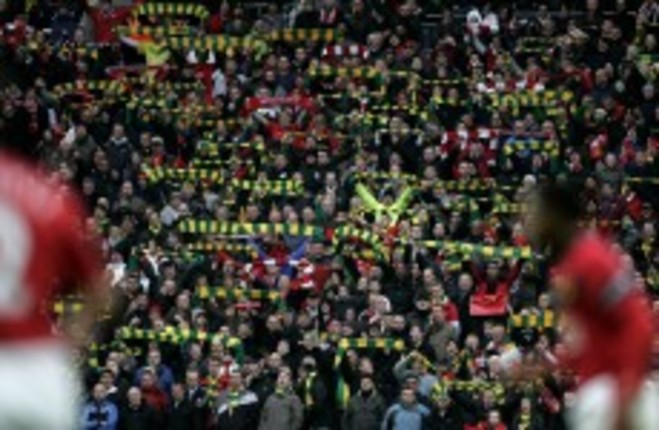IT IS A WELL-SETTLED principle of Anglo Saxon common law that an individual shall not pay for his family’s sins.
However, two recent events have cast doubt on the sanctity of that principle: the Irish economic meltdown and the US purchase of Manchester United.
What do these seemingly disparate actions have in common? They raise a common question: when do private problems become a private concern?
The Irish economic crisis owes to several complex and individual factors, but a few broad strokes of the brush show a damning painting.
The current favoured form of government worldwide and in Ireland, legislatures with elections every few years, creates an incentive for representatives to focus on immediate concerns instead of mid-to-long term consequences.
In the business world, the pressure of quarterly earnings creates a similar tunnel vision. The corporate culture of “burn-out and turnover”, where new hires work preposterous hours for two years and inevitably quit, only to go to another firm, has magnified this drive.
Financial executives no longer worry about when the derivative deal will blow up in their clients’ face – they will be long gone by then.
So Ireland got caught up in this chasm and the levy broke. The bad loans of real estate moguls and bankers normally signal one thing: a wave of corporate bankruptcies. But here’s the catch – these bankers have convinced the politicians that they are “too big to fail.” Thus, this massive private debt has been hoisted upon the Irish people.
The austerity measures mean that the Irish will pay more taxes for less services – and all for the sins of another.
Enter Manchester United. A wealthy American family wanted to own the highest-valued sports franchise in the world, but lacked the sufficient funds for a hostile takeover.
Thus, the Glazer family tapped into the endless supply of credit pre-2008. After the global economy tanked, the Glazer tapped into the Red Devils Piggybank to make personal loans. They also raised ticket prices. Neither was popular.
Both the Ireland and United situation pointed to a common problem: the general public, too scattered and disunited, failed to fend off a wealthy and concentrated pocket of power. It was democracy vs special interests. And it seemed that the special interests won.
Despite the initial victory, both Irish citizens and United fans have fought back. Many young and talented Irish citizens have chosen flight, captivated by the lure of immigration to Australia and elsewhere and a debt free re-start.
Many United fans protested in green and gold, but some have also chosen flight: FC United of Manchester is the new vogue alternative to the Red Devils.
It remains to be seen how the public backlash will play out. Ireland’s government plans to dissolve, but is that simply passing the buck or a reaction to democratic sentiment?
The EU has talked about private bondholders sharing the pain, but no concrete Brady plan has emerged. The Glazers have repaid a big chunk of their personal loans, but the lack of recent spending in the summer, and sales of Tevez and Ronaldo, leave doubts among the faithful.
As the clock ticks down to an Irish bailout, we can only hope for a little extra Fergie time to ensure that the details don’t force the public to pay for private problems.
Elliott blogs about soccer at Futfanatico.com
